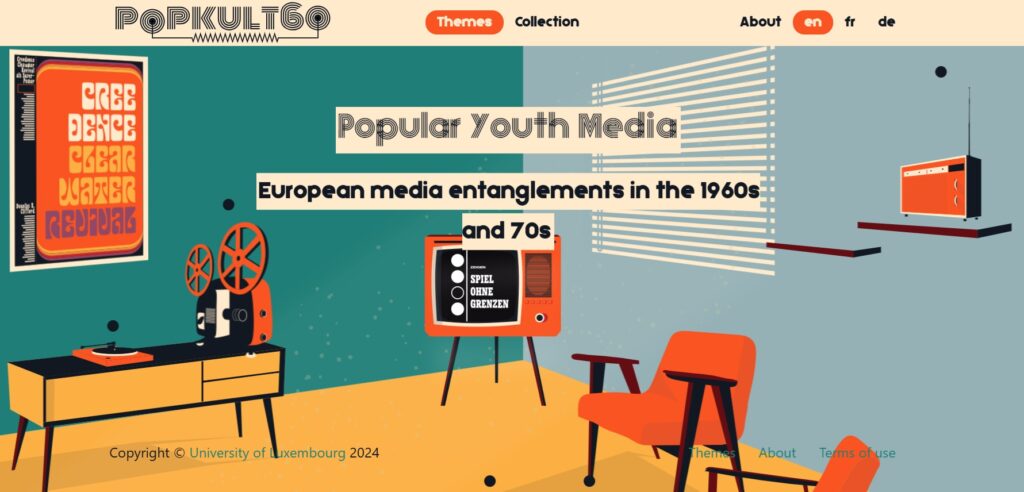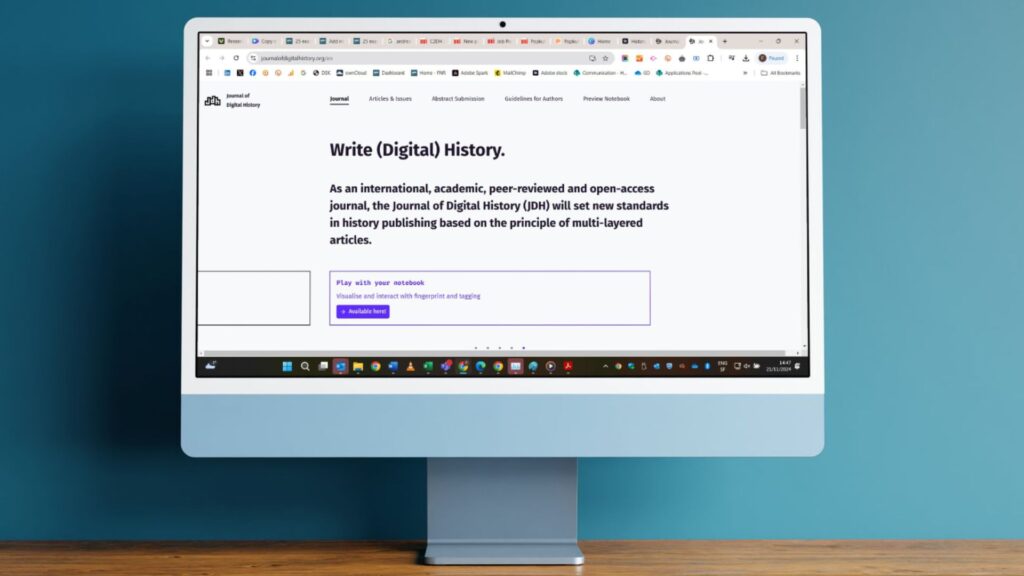BACK TO RESEARCH WITH IMPACT: FNR HIGHLIGHTS
As the FNR marks 25 years since its creation, we highlight 25 examples of FNR-supported research with impact
Andreas Fickers joined the University of Luxembourg in 2013, becoming director of the Luxembourg Centre for Contemporary and Digital History (C²DH) in 2016. The historian’s research explores the intersections of digital history, experimental media archaeology, the European history of technology, and transmedia storytelling, with a focus on how media, technology, and narrative formats shape our understanding of the past.
“The mass digitization of archival collections & libraries has completely changed the ecosystem of historical research in the past 20 years. We have moved from an “age of scarcity” to an “age of abundance” in just two decades, and the whole chain of historical knowledge production- from information retrieval to source analysis to interpretation and the production of a historical narrative – is affected by this. This is why I advocate so strongly for an “update” of our classic hermeneutics to the digital age. ”Andreas Fickers Director, C²DH | Professor of Contemporary and Digital History, University of Luxembourg
MAIN FIELDS OF RESEARCH
Digital History and Hermeneutics
Epistemological and methodological reflections on how digital tools, data, and research infrastructures interfere in the thinking, doing, and narrating of history.
Experimental Media Archaeology & Transnational Media History
Hands-on history with old media technologies and transnational histories of radio & television.
European History of Technology
Focus on “object biographies” of technical artefacts or infrastructures and cultural history of technology.
Transmedia Storytelling
Experiments in transmedia storytelling (virtual exhibits, podcasts, comics, web documentaries) and new narrative formats for public history.
Setting new standards in historical study of popular culture
The project “Popkult 60”, supported by the international strand of the FNR’s CORE programme, set new standards in the historical study of popular culture in the long sixties. It systematically promoted a transnational and intermedial perspective, in the process challenging the predominant narrative of “Americanization”.
Another project, “Doing Experimental Media Archaeology”, also supported by a CORE grant, (DEMA) led to a wealth of hands-on experiments, opening a door to innovative formats of documentation and re-enactment. In addition, the close collaboration with the engineering department of the University enabled the production of innovative 3D models as well as 3D printed replica of obsolete media technologies.
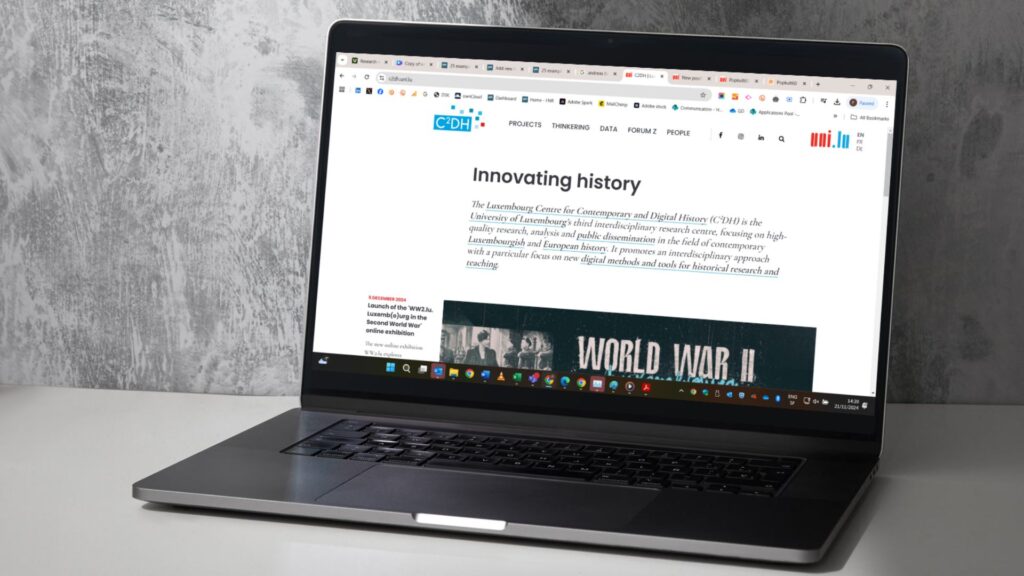
Training the next generation of historians to conduct their work in a digital world
A strong focus of Fickers’ research revolves around how historical knowledge is produced and “translated” for a general public. The historian emphasises that a key element of the job as professor at the university is to prepare the next generation of historians for the job.
Training the next generation on new skills and competences of “digital literacy” is just as important as teaching them how to view digital sources with a critical eye. In a world increasingly flooded with “fake news”, these skills are essential to equip them with ways of dealing with questions of authenticity and integrity.
“A critical – not negative – stance towards AI and the contextualisation of current and past “data” is the basis for a humanistic approach to the many challenges of digitalization in current and future democratic societies. ”Andreas Fickers Director, C²DH | Professor of Contemporary and Digital History, University of Luxembourg
AI especially relevant in digital history
Fickers explains that while the future impact of AI is a key topic for all areas in humanities and social sciences in general, it is especially the case in digital history. The C2DH has set up an internal task force on the topic that is working on preparing a “manifesto” on responsible and critical use of AI in historical research. A new professor position on “AI & History” has just been advertised.
Read the job description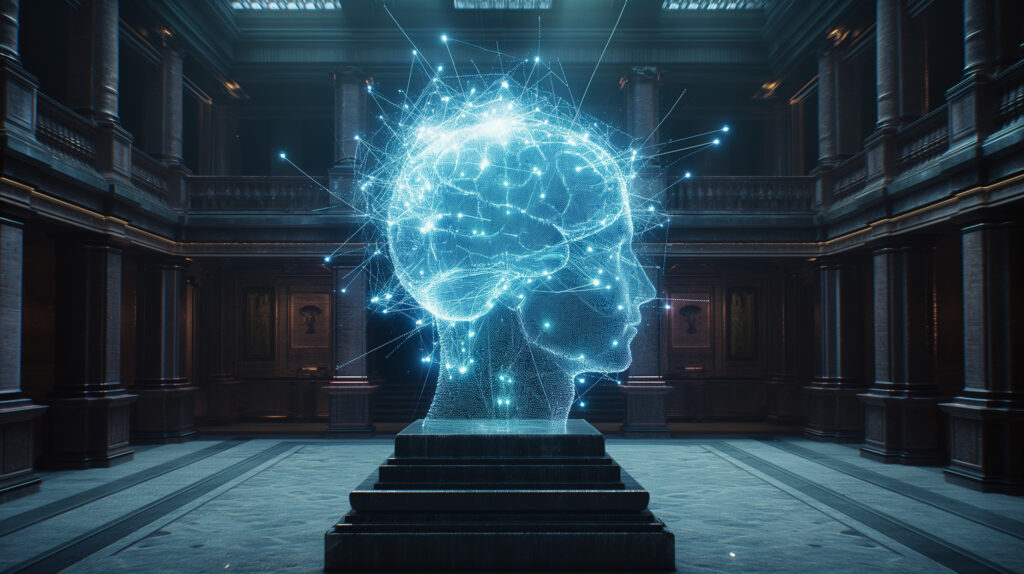
Journal of Digital History & the importance of interdisciplinarity
“The “Journal of Digital History” that we created at C2DH in a joint-venture with the publisher DeGruyter-Brill has become the central platform for the publication of data-driven historical research. It offers a unique design and multi-layered system for the publication of innovative scholarship, giving access to research data and enabling the reproduction of research results by sharing code and data.”
Interdisciplinarity is an important word in digital history. Fickers has headed two Doctoral Training Units funded via the FNR’s PRIDE programme, one titled “Digital History and Hermeneutics” and the other “Deep Data Science of Digital History”. Fickers names them as perfect examples of interdisciplinary “trading zones” in the field of digital humanities, also leading to many innovative PhD theses.
As a testament to his dedication to mentoring and taking the next generation under his wing, Fickers was the first recipient of the FNR Award for Outstanding Mentor, introduced in 2021. The award – for which only mentees can nominate someone, often without their knowledge – recognises mentors that go above and beyond.
Public outreach key mission
Returning to the topic of training future historians, an online tutorial by the name of “Ranke2”, developed for digital source criticism, has had an important impact on how students and the general public alike are trained in the historical method of source criticism.
The general public is an important audience for the C2DH, with public outreach being a key mission. Several forms and formats of “public history” with a strong focus on new digital methods of participation and engagement are promoted. One example is the work of FNR ATTRACT Fellow Thomas Cauvin, whose project revolves around actively involving the general public in the production of history. Cauvin is specialised in public history and Head of the ‘Public History and Outreach’ Research Area at C2DH.
“We see digital public history as a new form of citizen science of the past, trying to engage with a great variety of publics and aiming at “sharing authority” between professional historians and the large number of people interested in history in the country.”
Careful approach to “technological solutionism”
“Every day we see new digital tools and infrastructures – and the different temporalities of the “fast development” in industry and the “slow appropriation” in the academic context create a growing tension. ”Andreas Fickers Director, C²DH | Professor of Contemporary and Digital History, University of Luxembourg
Fickers emphasises the importance of keeping a critical distance towards the ideology of “technological solutionism”, but still promoting hands-on experimentation with new software and tools. This is how to critically evaluate both the possibilities and the limitations of such tools for the discipline of history.
“It will be important that we – as a humanities discipline – promote our knowledge on digital hermeneutics more overtly and that we actively participate in the co-design of new tools and infrastructures that reflect the critical thinking and contextualisation of data in our field.”
When asked about his research goals for the future, Fickers simply wishes for “Having more time for ‘doing’ research – spending less time on ‘managing’ research.”
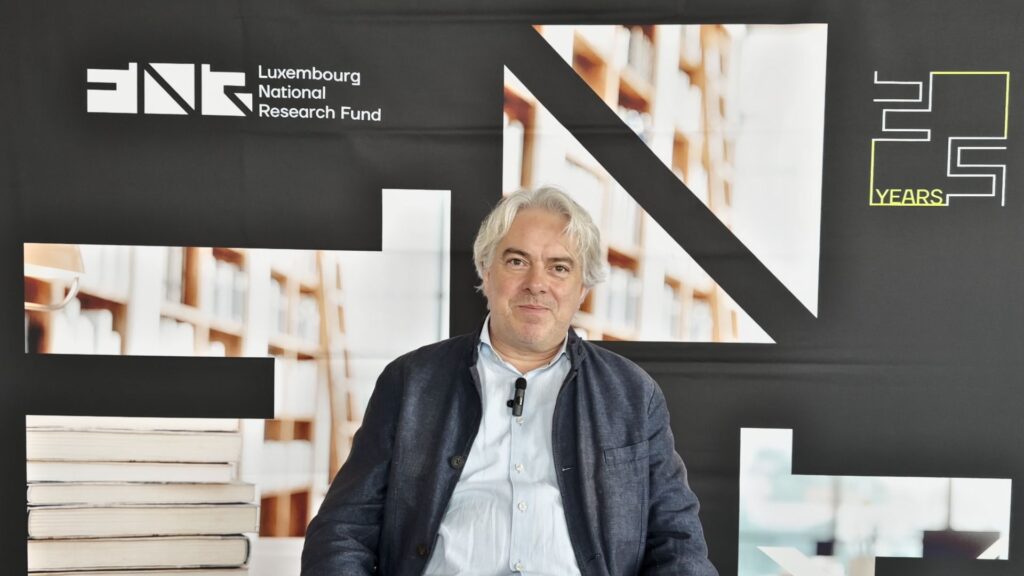
Andreas Fickers on international collaborations
“We have a lot of important national and international partnerships in the field of contemporary, digital, and public history. We have established staff and student exchanges with the Zentrum für Zeithistorische Forschung (ZFF) in Potsdam or the Centre for History and New Media (CHNM) at George Mason University in Virginia / U.S.A., supported by the FNR Intermobility program. The INTER-projects (such as Popkult60 or BUREU) have allowed to establish strong partnerships with Saarbrücken University or Leuven University, and the long list of international partner institutions of the DTU’s have enabled us to turn the C2DH into a “hub” for digital history at a global scale.”
Andreas Fickers on training PhD candidates
“In total I must have supervised some 15 PhD students and 10 Post-Doc researchers, not to forget my role as PI in the DTUs (13 PhD students in the DTU “Digital History & Hermeneutics” and 18 PhD students currently being enrolled in the DTU “Deep Data Science of Digital History”). At C2DH, we promote a research culture based on principles of mentorship and coaching, aiming to create a secure environment for doing cutting-edge – and therefore also “high-risk” or “experimental” research. This requires a shared responsibility between students and supervisors / coaches and a joint commitment for pushing boundaries and leaving the comfort zone. I think that we offer students a very supportive and creative environment in which they can grow as researchers and personalities.”
Andreas Fickers’ FNR funded projects (main applicant)
| Project title | Call year | FNR funding instrument |
| Tracing the legacy of Edward Steichen: A glocal approach to the international reception and national heritagisation of the “Family of Man” exhibition | 2023 | CORE |
| Data Science of Digital History | 2022 | PRIDE |
| Bureaucracy by Design? EU Office Interiors as an Interface Between Architectural “Hardware” and Managerial “Software”, 1951-2002 | 2021 | CORE |
| Populärkultur transnational – Europa in den langen 1960er Jahren | 2020 | INTER |
| Collective endeavour of strategic research collaboration between C2DH and RRCHNM | 2020 | INTER Mobility |
| Doing Experimental Media Archaeology: Theory & Practice | 2019 | CORE |
| 9th Tensions of Europe Conference | 2018 | RESCOM |
| Populärkultur transnational. Europa in den langen 1960er Jahren | 2017 | INTER |
| Digital History and Hermeneutics | 2015 | PRIDE |
Related Funding Instruments
Related highlights
25 examples of research with impact: The science of fairness – inside inequality
As the FNR marks 25 years since its creation, we highlight 25 examples of FNR-supported research with impact. Since arriving…
Read more
25 examples of research with impact: A solid foundation for artificial intelligence
As the FNR marks 25 years since its creation, we highlight 25 examples of FNR-supported research with impact. Artificial intelligence…
Read more
25 examples of research with impact: Smart materials for a sustainable future
As the FNR marks 25 years since its creation, we highlight 25 examples of FNR-supported research with impact. Since arriving…
Read more
25 examples of research with impact: Advancing AI and Computer Vision: From space tech to better healthcare
As the FNR marks 25 years since its creation, we highlight 25 examples of FNR-supported research with impact. Since arriving…
Read more
25 examples of research with impact: Understanding the evolution of the workplace in the digital era
As the FNR marks 25 years since its creation, we highlight 25 examples of FNR-supported research with impact. Active in…
Read more
25 examples of research with impact: Breaking barriers in cancer research & treatment
As the FNR marks 25 years since its creation, we highlight 25 examples of FNR-supported research with impact. In Luxembourg…
Read more
